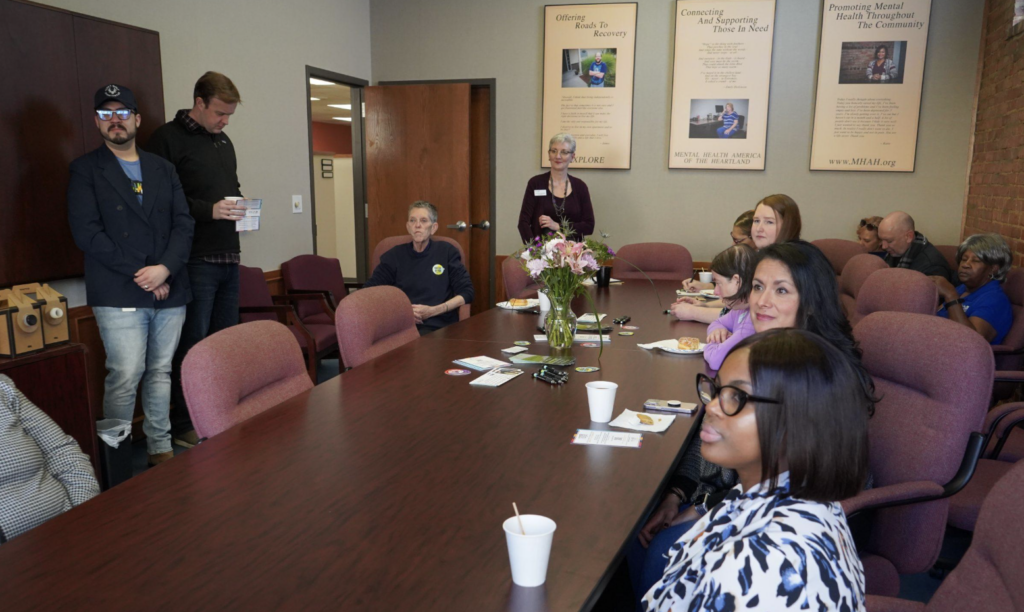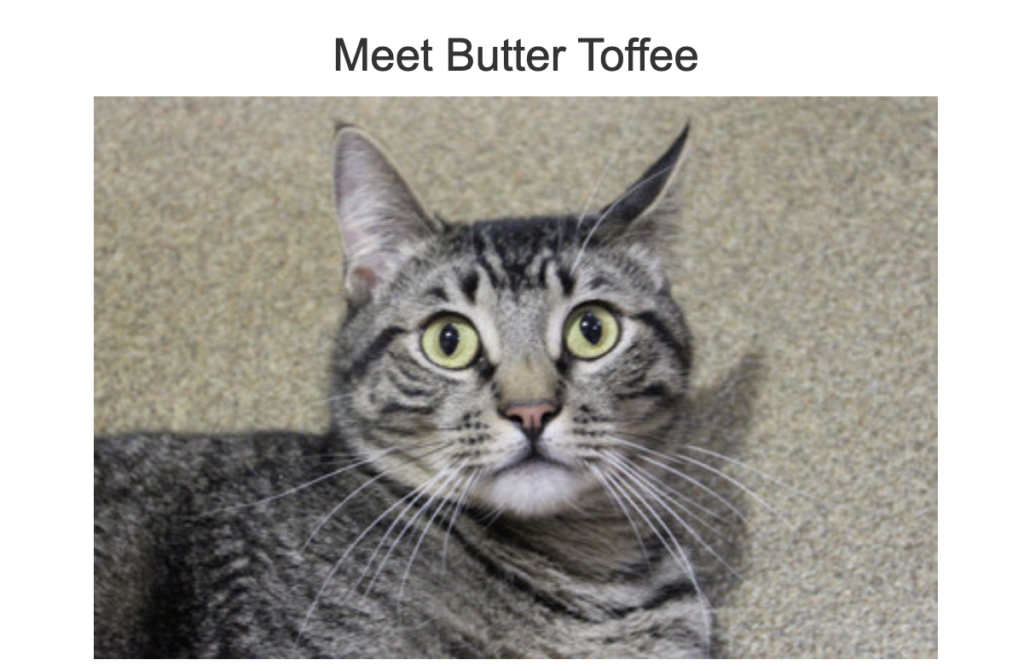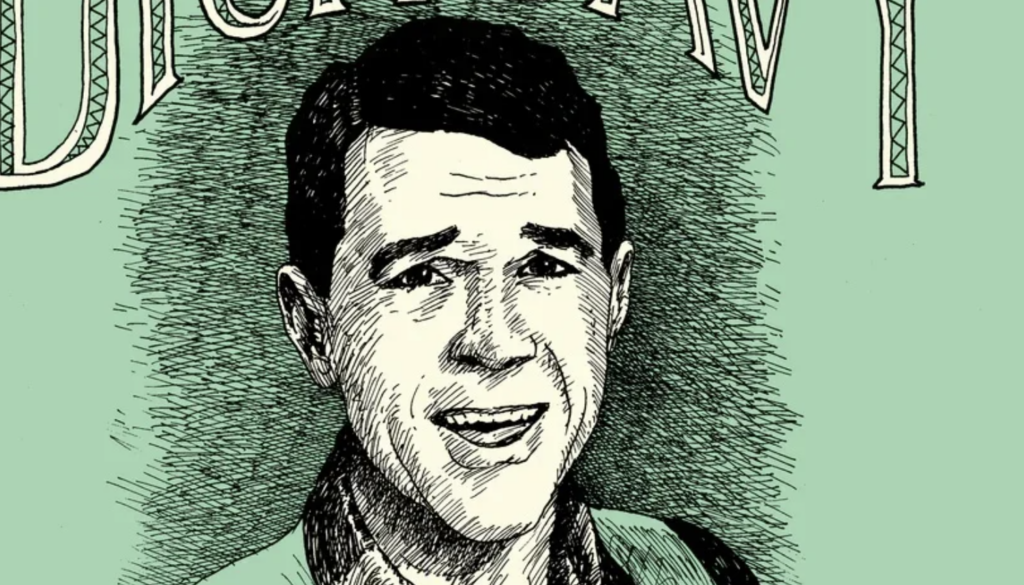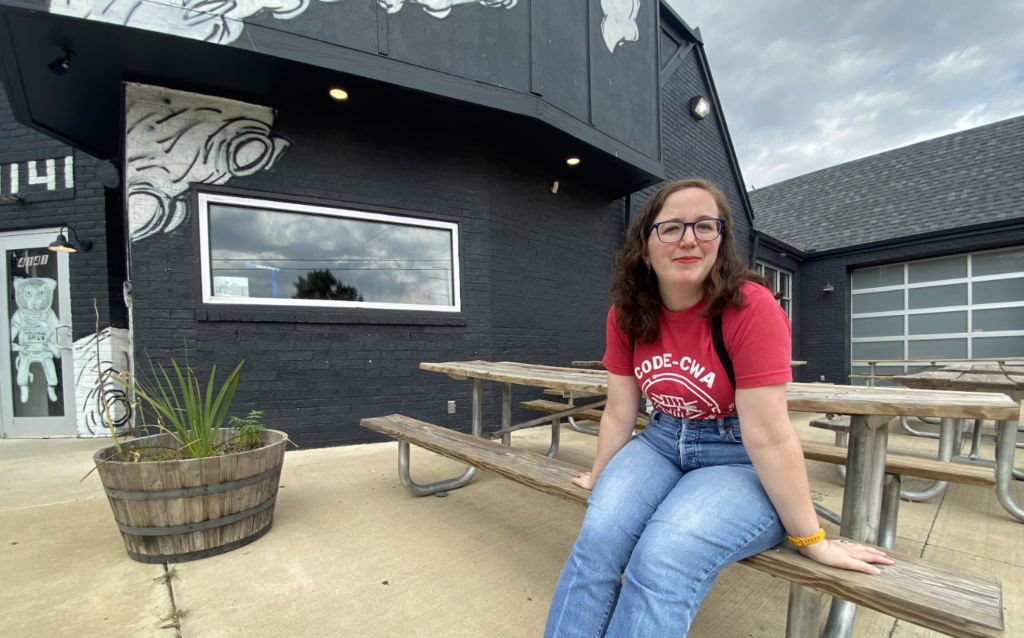Author and podcaster Kate Winkler Dawson masters All That is Wicked
Author and podcaster Kate Winkler Dawson’s show for the Exactly Right network (founded by Karen Kilgariff and Georgia Hardstark of My Favorite Murder), Tenfold More Wicked, is a true crime fan’s dream. Each season, Dawson digs into a case either forgotten or never covered in-depth, speaking with those affected and visiting the locales where these crimes took place.
The first season, “All That is Wicked,” told the tale of late 19th-century serial killer Edward Rulloff, and is now expanded into a book, All That Is Wicked: A Gilded-Age Story of Murder and the Race to Decode the Criminal Mind, which released last week via G.P. Putnam’s Sons.
At the same time, Dawson has kicked off a new podcast with retired cold case investigator Paul Holes called Buried Bones, wherein the pair dissect some of history’s most dramatic true crime cases from centuries ago” and “explore these very old cases through a 21st century lens.” All of this new material from a fantastic writer and voice meant that it was the perfect time to hop on Zoom and speak with Dawson from her home in Austin about all of this and more.
The Pitch: We were very excited to see that you had this new podcast, Buried Bones, because it seems that with each successive project you have, you’re going a little further afield in from your comfort zone. Would that be an accurate assessment?
Kate Winkler Dawson: I like to challenge myself, so I’m looking for opportunities that let me push my boundaries. Certainly, adding a third podcast and writing more books and all kinds of other stuff push my boundaries for time, at a minimum.
You’re a teacher, as well.
I am. I’m a college professor at the University of Texas. I’m a professor of practice at the journalism school in UT. I have to be pretty well organized and I was a television news producer for decades and I’m got a little bit of an A-type personality, probably—a little OCD—so I enjoy having to organize a lot of different things at the same time. It’s sort of what I’ve done my whole life.
I was a freelancer in New York for TV stations for years, and I had to juggle a schedule, so it’s no big deal to me but, certainly, people who see my Google calendar, it’s a little mind-boggling. And I have two kids, so I’m picking them up and taking them to practices, and I’ve got a kid home with the flu right now, so it’s a little bit of a juggle, but I like it. I enjoy it now.
Hearing what you do podcast-wise and reading your books, the research is impeccable. You must spend a lot of time doing the legwork so that the result feels as though you just knew it all along.
I think so. I think that that’s just years of work. I don’t think there’s any magic, anything. Honestly, you know, I have time to do hobbies and spend time with my family. I see my parents every day. It’s being efficient more than anything else. I’ve been researching history for most of my life, so I know where to look.
I know the tidbits I’m looking for. I know how to take notes. I know how to organize things. It’s just from years of experience. I know writers who spend 10 years researching books. I can’t do that. I have a really solid amount of research that I’m comfortable with, and then I write the proposal. The book is sold, and then I’m able to use that research for the podcast or for the books to get started, and throughout the period, I’m doing additional research along the way.
I kind of have it down, for me, to a science. I don’t know about other people, but that’s the way I have to approach things.
How did Buried Bones come about?
Paul and I are comfortable with each other. I respect him. I’ve always respected him as an investigator. I’ve been a Paul Holes—I don’t know about a fan, but I’ve had a lot of mutual respect for him. He’s used to working with journalists, obviously with Michelle McNamara, and I’m used to working with detectives and investigators. So, there was no animosity that you might find between those two groups. We felt very comfortable because I think we speak the same language and we bring different tools to the table.
Paul was on Wicked Words. I really wanted him on the show and I did not wanna talk about the Golden State Killer because he’s tired of talking about it and sometimes I get tired of hearing about it, so I really wanted to do something different and I said, “Do you have a case that you’ve been involved with that we could talk about?” and he said, “Yeah, I’ve got this case from 1925. I was asked to consult on it because there were some bones and some autopsy photos that were discovered recently,” and I said, “What’s the case?” and he said, “Bessie Ferguson.”
I’ve written about Bessie Ferguson. She was in my second book, American Sherlock, so when we did this case together, it sounded like Buried Bones, where I just unraveled the story because I knew a lot more about Bessie Ferguson than he did. Then he chimed in and said, “Well, this is what I think.” He came up with some theories I had not thought of before.
 We’re speaking on the release day for All That is Wicked. When you were working on the podcast, were you considering it as a book?
We’re speaking on the release day for All That is Wicked. When you were working on the podcast, were you considering it as a book?
It started as a book. That’s what’s interesting about it: it’s not a podcast. It’s not a book that was adapted from a podcast. It’s a podcast that was adapted from a book. I did two or three years of research for this book and then I presented in my editor and my editor said, “I don’t know. I think you still need to work on the angle. We need to really focus in.” I had not come up with the current theme of it, which is that moment in time when Edward Rulloff is shackled to the floor of the Binghamton jail and you have all these mind hunters coming in and trying to figure out the criminal mind.
The book I had proposed was much broader, like the podcast is–where it’s a basic story of Edward Rulloff and a little bit of his impact. So when we published American Sherlock instead, I decided, “Well, I wanna do a podcast.” Since I had already done the research on Rulloff, this would be a great way to jump into it.
And it worked out because the podcast was wonderful and while I was working on the podcast, I realized that there was a different way to reorganize the book in a way where I could really highlight Rulloff’s importance to neuroscience and to the criminal mind. So, I decided to pitch it again.
I reworked the proposal, touched my agent, pitched it again to my editor, and she said, “Yeah, this is great,” and she didn’t say yes based on the podcast at all. It was more like, “This is a good way of rethinking.” The podcast and the book are very, very different. You still get Rulloff’s basic story in the book but really, most of it is about his manipulation.
There’s a lot of stuff that was never in the podcast. You just can’t put it into four hours’ worth of content.
What’s it like for you, making the transition between writing, recording on your own with Tenfold More Wicked and then what is essentially interviews on Wicked Words and now you have a co-host for Buried Bones. Has it been easier because the transitions have been gradual rather than all of a sudden?
I think so. They’re so different. I teach students at the University of Texas and I teach them podcasting, but I’m teaching right now a really great course I love called Creative Non-Fiction, and I give them a choice of all these different ways. There’s newspaper writing, magazine writing, podcast, book proposals, video—all of which I have experience in—and I say, “You can make your own project. Let’s figure out which project works for you individually.”
When we talk about podcasts, I say I’ve done all three: there’s the non-fiction narrative, which is Tenfold, and then there’s the straight-up interview style, which is Wicked Words, and then the co-host style, which I never thought I would ever wanna do in a million years , but it’s pretty hard when Paul Holes says, “Yeah, I think that’s a great idea. Let’s do it.” It’s hard for me to say no to that.
So, they are really different but I think the nice thing is that, because I have so much experience, it’s not jumping in and it’s not trial by fire because I’ve had trial by fire on all three of these types of shows for a long time. I’ve worked with officers and investigators and attorneys as a journalist, so this wasn’t shocking to me. I’ve spent years sitting down with my buddies who are in law or law enforcement and saying, “I’ve got this idea for a story. I’ve got this case. Let’s talk about it,” so it was very familiar to me and you know, with Wicked Words, I’ve interviewed people my whole life.
All of this feels familiar. It’s just different having a microphone and being in my closet with soundproofing material around it. That’s the only difference for me.
All That Is Wicked: A Gilded-Age Story of Murder and the Race to Decode the Criminal Mind is out now from G.P. Putnam’s Sons. Buried Bones can be found wherever you get podcasts.





